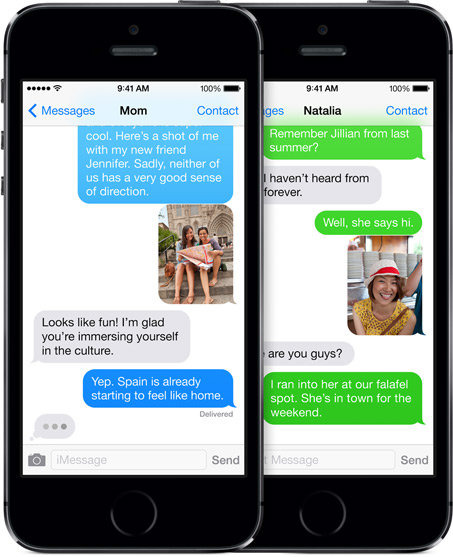A U.S. federal judge has dismissed a lawsuit against Apple over the company's iMessage system, which can misdirect texts once iPhone owners switch over to Android, a report said on Wednesday.

Judge Lucy Koh granted Apple's motion for summary judgment in the case after the company discovered that two of the three remaining plaintiffs had only gotten rid of their iPhones after they filed suit, thus making them unable to show whether texts sent to their phone numbers went to the right device, according to Business Insider.
One of the plaintiffs, Bouakhay Joy Backhaut, previously claimed that a fellow plaintiff -- husband Adam Backhaut -- had traded in her iPhone when buying a new Android device. A friend of the couple, Kenneth Morris, was the third plaintiff. Bouakhay at one point asked to be dismissed as a named plaintiff.
The case once had other plaintiffs and was potentially poised to become a class action, but in August Koh declined to grant it that status, saying it would've been "overbroad" because not every person was impacted in the same way, and there might've been varying reasons why texts couldn't be delivered.
At the root of the case is a very real issue. iMessage links a user's iPhone number with his or her Apple ID, and when fellow iPhone owners send a text, the message is preferentially delivered through Apple's network instead of SMS. If a person simply ports their number to a phone on a different platform, texts from iPhone owners may still be delievered to that Apple ID.
Apple was hit with many complaints, and the company's solution was ultimately just a Web tool for deregistering iMessage, and warnings to deactivate both iMessage and FaceTime before switching to a new device.

